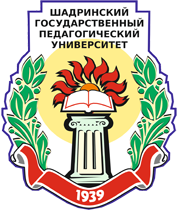Нетрадиционные методы и приёмы организации работы по лексике в средней общей школе
Non-traditional methods and techniques for organizing work on vocabulary among secondary school students
Аннотация
В статье рассматривается проблема использования нетрадиционных методов и приёмов, форм и способов работы в освоении и закреплении раздела современного русского языка «Лексика». Особое внимание авторы уделяют описанию эффективности использования методов и приёмов при обогащении словарного запаса учащихся 5 классов, при подготовке к выполнению заданий ОГЭ и ЕГЭ в старшей школе, что соответствует современным запросам ФГОС и государственного заказа, необходимости внедрения инновационных технологий в образование, формам и целям работы учителя-словесника. Описанные нетрадиционные методы и приёмы могут стать необходимым подспорьем в освоении раздела «Лексика» в 5 классе, материалом для проведения предэкзаменационной работы в 9 и 11 выпускных классах. Результат работы – систематизировано-качественные методы как опора для работы над развитием активного словарного запаса учащихся.
Abstract: The article discusses the problem of using non-traditional methods and techniques, forms and methods of work in mastering and consolidating the section of the modern Russian language «Vocabulary». The authors pay special attention to the description of the effectiveness of using methods and techniques in enriching the vocabulary of the 5th grade students, in preparing for the tasks of the General State Examination and Unified State Examination which corresponds to modern requirements of the Learning Standards and the necessity to introduce innovative technologies in education, forms and goals of Russian Language teacher’s work. The described non-traditional methods and techniques can become a necessary aim in mastering the section «Vocabulary» in the 5th grade, as material for carrying pre-examination work in the 9th and 11th grades. The result of the work - systematized - qualitative methods as a support for working on the development of students’ active vocabulary.






